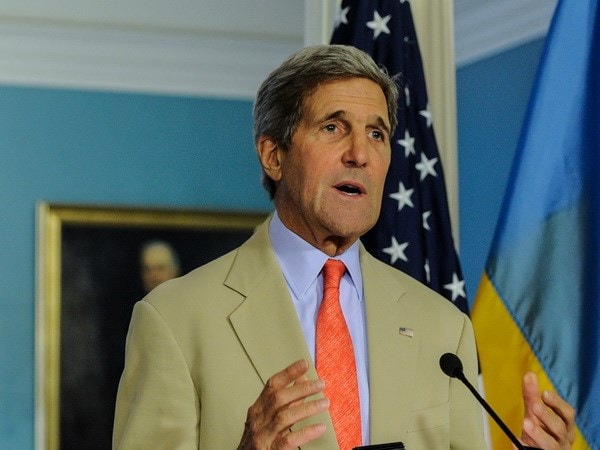US-India Annual Strategic Dialogue
(Baonghean) - On July 31, US Secretary of State John Kerry officially visited India to attend the 5th annual US-India dialogue. At present, the US-India relationship has a special significance for both countries as well as for the region and the world. Because in the context of the US and India having the same orientation: the US is implementing a policy of shifting strategic focus to the Asia-Pacific region, and India is also affirming its Eastward policy, making the two countries have the need to seek consensus on the interests of both sides in the region and the world.
 |
| US Secretary of State John Kerry. (Photo: THX/TTXVN) |
The remarkable transformation also comes from Washington's policy change towards New Delhi. Since gaining independence from Britain in 1947, India has never had a warm relationship with the US due to New Delhi's neutrality during the Cold War. The Gulf War in the early 1990s of the last century caused a crisis in world oil prices, which severely impacted the Indian economy. India began to expand its extensive economic and trade relations with many countries around the world, including the US. US-India relations have gradually improved since the time of former US President Bill Clinton and have been strongly promoted since President Bush Jr. took office and implemented a strategy of expanding cooperation with India. The then GWBush administration signed an agreement ending decades of isolation of India due to the South Asian country's nuclear development program. When he took office in 2009, in the new strategy announced by the Obama administration, India was mentioned as an essential partner. President Obama once declared that the US-India relationship could become “one of the defining partnerships of the 21st century”.
The annual strategic dialogue is considered a solution to increase mutual understanding, often taking place in the form of 2+2 between the Foreign Minister and the Defense Minister of two partner countries. The annual strategic dialogue is a trend being applied by countries around the world to enhance cooperation as well as build trust between the two sides. After 4 dialogues starting from 2010, the US-India relationship has now developed and stabilized, the two sides have a certain trust in each other on regional and international issues. With this 5th dialogue, the bilateral relationship between Washington and New Delhi is expected to bring a new momentum for development in the future. This is the first dialogue between Washington and New Delhi since the new Government of Prime Minister Modi came to power in India.
For India, it is undeniable that the relationship with the US brings many benefits, especially in the context of fierce competition between India and Pakistan in South Asia. India needs the US to access capital, technology, especially nuclear and space technology, and an output market for information technology, pharmaceuticals, textiles and auto parts. For the US, strengthening the US-India relationship further strengthens US interests in South Asia. India has a geostrategic position in relations with the four countries that the US is currently interested in: Afghanistan, Pakistan, Myanmar and China. By cooperating with India, the US can protect the sea routes carrying oil from the Middle East to countries such as Japan and South Korea, and access India's huge consumer market of 1.2 billion people.
US officials have repeatedly said that building a good relationship with India will help the US accelerate its regional engagement strategy, partially resolve domestic economic difficulties, and help the US contain and prevent strategic competition from some countries in the region against the US, especially the rise of China, which is often accompanied by unilateral actions by this country. In that context, besides Japan, India is the country with the potential to counterbalance China in the Asian region, an important link in the US's pivot strategy.
Unlike the relationship with China, although there is an annual US-China dialogue, the two sides still have many irreconcilable disagreements and cannot have the necessary trust for each other. Although India has not officially become a "close ally" of the US, it can still become a reliable partner because the possibility of India posing a threat to any core US interests as well as threatening US allies is very small.
The warming of US-India relations also inevitably has consequences in the strategic struggle between major countries in the region and the world such as the issue of non-proliferation of nuclear weapons, differences in the aspect of establishing a new world order after the Cold War, conflicts in strategic interests in the Indian Ocean, conflicts in economic and human rights issues and the influence of US-Pakistan relations... Despite ups and downs, the US-India relationship has always known how to ease conflicts to move towards friendly handshakes. To promote the US-India strategic partnership, the two sides have continuously taken steps to build mutual strategic trust, thereby being more cautious in their actions to avoid affecting bilateral relations. Therefore, the annual strategic dialogue is an effective "string" for the US and India to enhance mutual understanding in the context of the relationship between the two countries having both opportunities and challenges in the 21st century.
Nguyen Cao Bien






